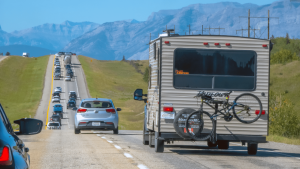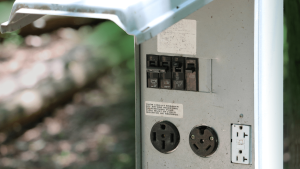If driving feels more tense these days, there’s a reason. A new study from the AAA Foundation for Traffic Safety found that 96 percent of drivers admitted to aggressive behavior behind the wheel over the past year. Speeding, tailgating, cutting others off, and honking in anger have become routine.
AAA found that road rage can be contagious. The more you run into aggressive drivers, the more likely you are to act the same way. Dr. David Yang, president of the AAA Foundation, says that improving road etiquette could help break the trend. Little things like using turn signals, allowing others to merge, and offering a quick wave can calm tense moments and make roads safer.
The study also found that the type of vehicle can influence behavior and perception. Drivers of sports cars, large trucks, and motorcycles were more often seen as aggressive. Some even reported feeling more dominant when driving these vehicles.
Since AAA’s last review in 2016, cutting off other cars has risen by 67 percent, and angry honking by 47 percent. On the other hand, tailgating dropped 24 percent and yelling fell 17 percent.
Why Road Rage Carries Real Risk
Aggressive driving isn’t just unpleasant. The DJC Law Firm points out that it can lead to criminal charges if it turns violent, and some incidents qualify as felonies when injuries or threats are involved. It can also affect insurance. Accidents caused by aggressive driving may raise rates, and many policies do not cover intentional acts.
Research shows another troubling trend: road rage shootings have increased every year since 2018. That adds a safety dimension beyond fender benders and traffic tickets.
Staying Safe When Tempers Flare
AAA recommends three simple habits to avoid escalating a situation:
- Stay calm and avoid engaging. No eye contact, no gestures, and no verbal exchange.
- Give aggressive drivers space. Slow down or change lanes to let them pass.
- Protect yourself if threatened. Head to a public place or call 911 rather than driving home.
The DJC Law Firm adds further defensive strategies:
- Stay in your car. Lock doors and windows if someone confronts you.
- Do not return home if followed. You don’t want them to know where you live and potentially return later. Drive to a police station or well-lit public area instead.
- Record the incident. Dashcams or phone video can help authorities and protect you legally.
- Drive confidently but not aggressively. Keep steady speed and signaling; avoid erratic moves.
- Trust your instincts. Change routes if something feels unsafe.
- Call the police if danger escalates. Your safety comes first.
Road Rage and RV Life
Spending long hours on the road in a motorhome or towing a trailer puts us in a unique spot. We’re bigger, we move slower, and simple things like changing lanes take more planning. That can frustrate impatient drivers, especially in heavy traffic. Staying calm, signaling early, and avoiding any urge to react keeps us safer and helps de-escalate tense moments. We can’t control another driver’s anger, but we can drive predictably and protect ourselves while enjoying the trip.







Write a comment